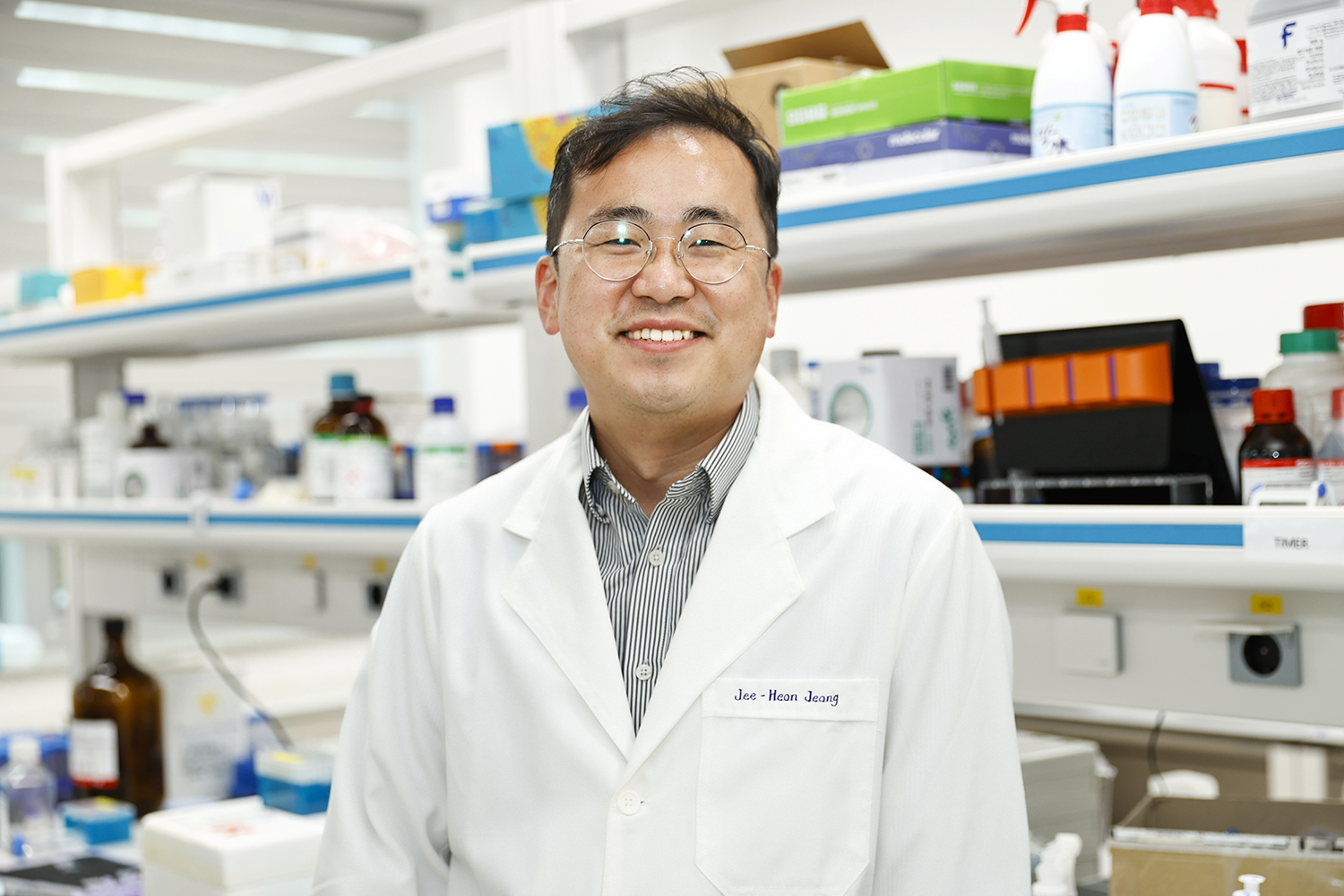College of Pharmacy Professor Jung Ji-heon Develops ‘Cell Fine Capsulation Technology’ N
No.89337- Writer pr
- Date : 2021.04.22 14:00
- Views : 8798
Overcoming the limitations of existing alginate capsulation technologies
New technology for capsulizing all cells evenly at the desired thickness
Can be applied as cell treatment development platform technology... Currently applied for domestic patents and PCT

The technology developed by Professor Jung’s research team is a new technology called STIG (surface-triggered in situ gelation) that can coat the surface of various materials including cell drugs at a constant size.
This study was achieved through the joint research among Professor Jung, Dr. Pham Thanh Tung (post-doctorate researcher at Cornell) who graduated from the YU Graduate School of Pharmacy, and Keimyung University Graduate School of Pharmacy Professor Yuk Shim-myung’s research team.
Alginate capsulation technologies currently used not only require expensive equipment for constant-size capsulation, but is also difficult to adjust the capsule size, and also has other issues such as several cells being capsulized simultaneously or there being empty capsules.
This technology developed by Professor Jung’s research team produces micro-particles that can emit calcium ions needed for alginate capsulation procedures, and this particle attaches evenly on cell surfaces and reacts in alginate solutions for a certain period of time, so that the alginate’s gel reaction [phenomenon of changing sol (where particles are dispersed in the solution) turns into gel (where sol becomes thicker than a certain concentration to become solid) occurs on the cell surface. This technology has completed domestic patent application and an international application for PCT (patent cooperation treaty).
Professor Jung said, “This newly developed technology will become a platform technology that can advance cell drug functions,” and added, “In particular, it is expected that it will be useful for locally delivering the drugs on the surface of cell drugs or for enhancing the transplantation survival rate of cell drugs.”